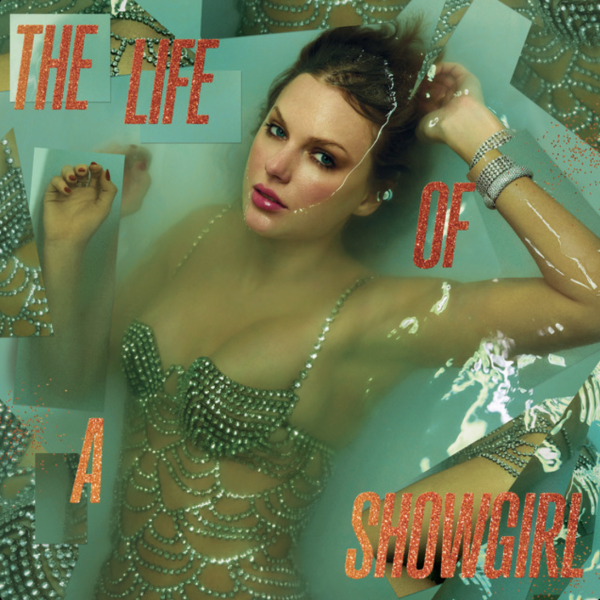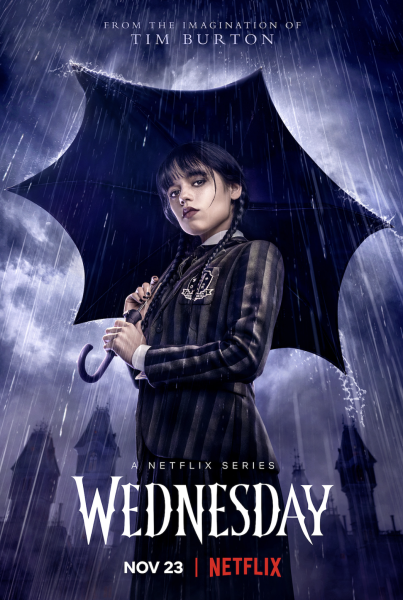“Avatar: The Way of Water” is a visual spectacle
While the plot may be lacking in some departments, this long-awaited sequel is more about seeing than believing.
Digital illustration of a promotional poster for “Avatar: The Way of Water.”
James Cameron’s 2009 film “Avatar” was hailed as a monumental film upon its release; it reinvigorated a stagnating film industry with its use of amazing visuals and stunning CGI, a new and rapidly developing technology at the time. The visuals of the film, especially when seen in the increasingly common 3D and IMAX theaters, dazzled viewers. Other films at the time had similar approaches, one example being Iron Man, which came out a year prior. However, the support of the international market was “Avatar”’s advantage. This perfect storm led to the movie becoming the highest grossing feature film of all time, a position it still holds today. Now, the long-awaited sequel is here.
Plotwise, the first “Avatar” follows a paraplegic marine named Jake Sully (Sam Worthington), who is sent to the alien planet Pandora to exploit its resources. He befriends the planet’s humanoid residents, the Na’vi, and eventually decides to rebel against his species to protect the planet and its natives. Jake’s rebellion succeeds, and he later becomes chief of a Na’vi forest tribe.
“The Way of Water” resumes Jake’s story, introducing us to his family, who make up the bulk ensemble of protagonists in the film. His wife, Neytiri (Zoe Saldaňa), is a fellow warrior who helped his rebellion in the first film. In addition to their own children, they take care of Spider, the son of “Avatar” antagonist Miles Quatrich (Stephen Lang), who was left behind on Pandora due to his young age.
Speaking of Miles Quatrich, he’s back, inhabiting a cloned Na’vi body and ready to lead a human colonization of Pandora. Fueled by revenge instilled from the previous film’s events, the Sully family must now find a way to stop Quatrich and save Pandora from the human race once more.
The plot of “The Way of Water” is unoriginal, to say the least. The main villain in this sequel is the exact same character as the original, just with some slight differences. Being a cloned Na’vi does have some interesting impacts on Quatrich’s character, but this is rarely fleshed out, and he is essentially treated as the same person as he was in the original.
Most of the film’s characters are somewhat generic too. Sully has barely developed since the first film, and neither has Neytiri. Their kids are more or less living archetypes: Neteyam is the confident older son, Lo’ak is the misfit son trying to live up to his father’s expectations, Tuk is the curious youngest child and adopted daughter Kiri is, no joke, also a Na’vi clone of a character from the first film, Dr. Grace Augustine (Sigourney Weaver).
These characters’ lack of traits fail to justify how much screen time they get; much of the film follows Sully’s kids, and it causes the story to really drag.
The pacing of “The Way of Water” is steady, but extremely slow. 192 minutes is a very long runtime, and the plot alone does not fill this entire period. It’s especially slow in the middle, and it would have been agonizing if not for the visuals.
The visual direction of the film is stunning. Like the first movie, it truly does break the boundaries of what CGI can do; nothing looks out of place or fake, and the physics and motions are very realistic. There is not a point in all of the 192 minutes of the film where the CGI was subpar, however some scenes in particular stand out. There is a scene in which a rocket lands on Pandora, and it is the most realistic rocket sequence I’ve ever seen in CGI before. The same goes for the various flora and fauna of the film; they are all extremely textured and move realistically. The visuals in “The Way of Water” set the bar for what good CGI should be.
Overall, I’d recommend watching “Avatar: The Way of Water.” The extremely vivid visuals of the film makes up for the slow plot and unoriginal characters. This is not something you watch for a compelling story; it’s something you watch because it looks spectacular, and compared to the ever-worsening CGI of many new films, that’s enough.

Thomas Rose is a senior and a writer for “The Express.” This is his second year on staff. In addition to newspaper, Thomas is a member of NHS at Northwest. He enjoys spending time with his family, friends and dogs, and also enjoys video games, reading and baking. He’s ready to keep informing the students and the community about current events.

Liz LaHood is a senior and the Online Editor of “The Express” and BVNWnews. This is her second year in the Online Editor position and third year on staff, previously serving as a writer. Outside of newspaper, Liz is a member of the NAHS Board, in addition to being involved in NHS, Quill & Scroll and MUSE. In her free time, she enjoys listening to music, reading, spending time with friends and watching movies, her favorites including “Alice in Wonderland” and “The Batman.” Liz is thrilled to return to the role of Online Editor and hopes to further elevate the high quality work put out by the staff.










